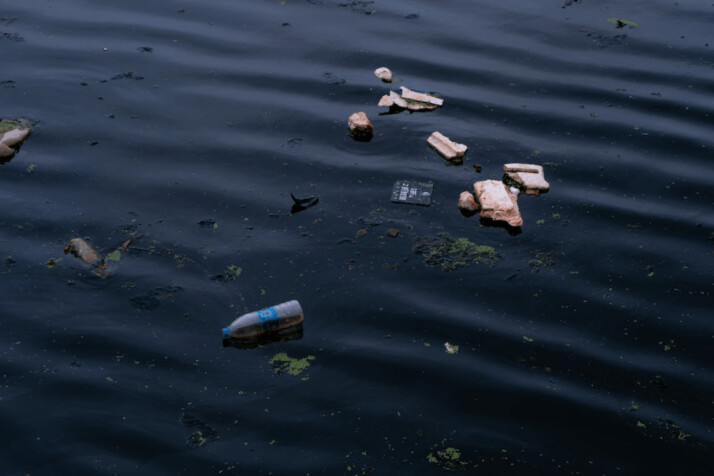We all know that water pollution is a huge problem – but did you know that research shows that nearly two-thirds of Americans are concerned about water pollution? Does almost half say they don’t have enough information about it? This is where questions about water pollution come in.
To help raise awareness and educate others on this vital issue, we’ve put together a list of six basic water pollution questions. This will help everyone know the answers. So without further ado, let’s get started!
6 Basic Questions About Water Pollution
1. What Is Water Pollution?
Water pollution occurs when harmful substances – such as chemicals, sewage, or trash – contaminate water bodies like lakes, rivers, oceans, and aquifers. These water bodies can be unsafe for swimming, drinking, and supporting marine life.
2. What Are the Main Types of Water Pollution?
There are two main water pollution types: point source and non-point source. Point source pollution occurs when pollutants are released from a specific location, such as a factory or wastewater treatment plant. Non-point source pollution happens when pollutants come from multiple diffuse sources, such as runoff from farmland or urban areas.
3. What Are the Leading Causes of Water Pollution?
The leading causes of water pollution vary depending on the type of pollution. For example, point source pollution is often caused by industrial activity or sewage systems. In contrast, non-point source pollution is typically caused by agricultural runoff or urban stormwater runoff.
4. What Are the Main Effects of Water Pollution?
Water pollution can have various harmful effects on both human beings and the environment. For humans, it can lead to health problems like gastrointestinal illness, skin irritation, and respiratory problems. In the background, it can harm or kill aquatic plants and animals and contaminate the food chain.
5. What Can We Do to Prevent Water Pollution?
Fortunately, there are several things we can do to prevent water pollution. For example, we can properly dispose of hazardous materials, limit our use of chemicals, and reduce our reliance on single-use plastics. We can also support organizations working to clean up polluted water bodies and raise awareness about the importance of water conservation.
6. Why Is It Hard to Eliminate Water Pollution at Once?
Water pollution is difficult to eliminate at once because it can come from many different sources.
For example, if a factory pollutes a river, closing the factory may immediately stop the pollution. But if the pollution comes from many farms’ runoff, it may be much more challenging to clean up.
In addition, some pollutants can stay in the environment for a long time, even after the source of pollution has been removed. This is why it’s so essential to prevent water pollution first!

What Next for the Water Pollution Pandemic?
We’re all aware of the water pollution pandemic. From the headlines to our own backyards, it’s impossible to ignore. But what’s next for this global issue?
There are theoretical answers to that question. But one thing is sure: we need to start doing something, and we need to do it now.
The First Step Is Increasing Awareness.
Many people are still unaware of the severity of the problem or the ways in which they can help make a difference. We must continue spreading the word about water pollution and its effects on our environment and health.
Once awareness has been increased, we can start working on solutions. This will require cooperation from governments, businesses, and individuals alike. We need to find ways to reduce pollution at its source, whether that means changing how we produce goods or dispose of waste. We also need to invest in cleaner technologies and infrastructure to treat wastewater more effectively.
Conclusion
This blog has helped to educate you on the basics of water pollution. Remember, knowledge is power – and the more we know about this issue, the better equipped we are to tackle it head-on. Together, we can make a difference!
Explore All Engaging Questions Tool Articles
Consider These Fun Questions About Spring
Spring is a season in the Earth’s yearly cycle after Winter and before Summer. It is the time life and…
Fun Spouse Game Questions For Couples
Answering spouse game questions together can be fun. It’ll help begin conversations and further explore preferences, history, and interests. The…
Best Snap Game Questions to Play on Snapchat
Are you out to get a fun way to connect with your friends on Snapchat? Look no further than snap…
How to Prepare for Short Response Questions in Tests
When it comes to acing tests, there are a few things that will help you more than anything else. Good…
Top 20 Reflective Questions for Students
As students, we are constantly learning new things. Every day, we are presented with further information and ideas we need…
Random History Questions For History Games
A great icebreaker game is playing trivia even though you don’t know the answer. It is always fun to guess…
